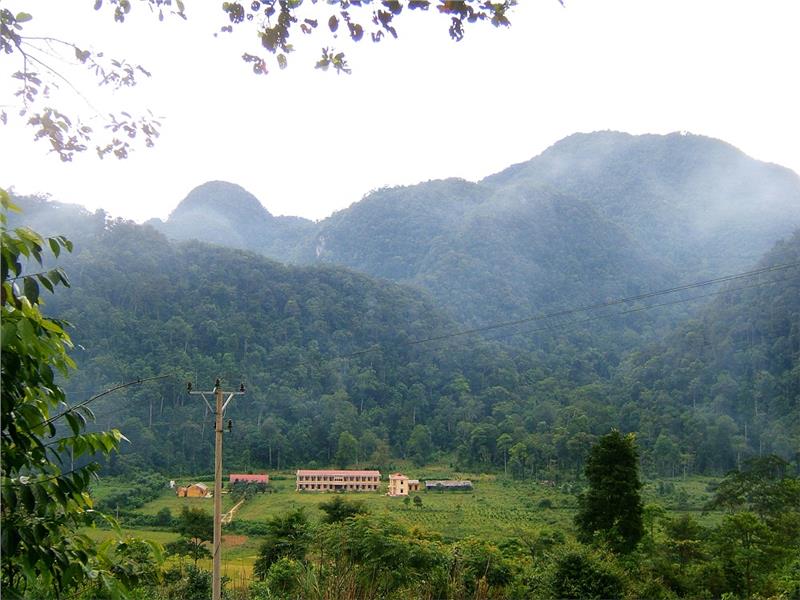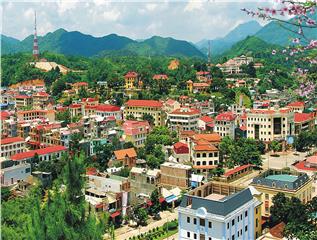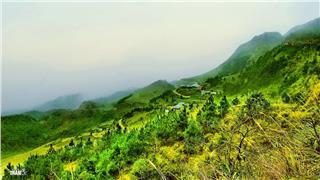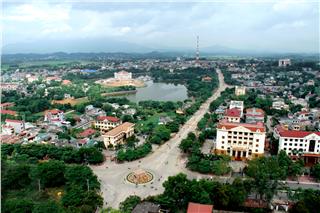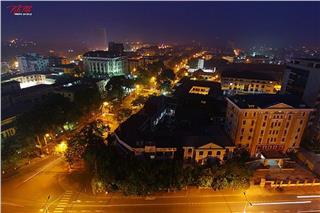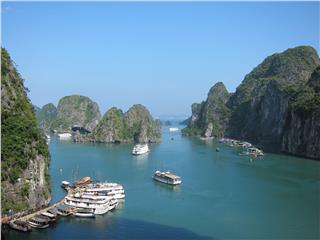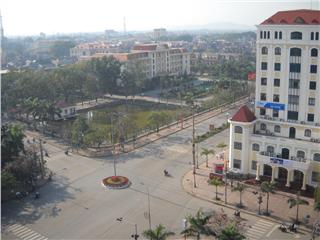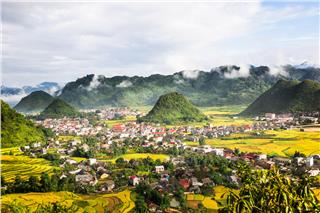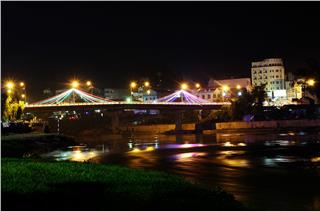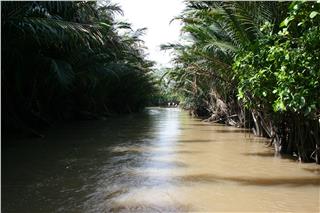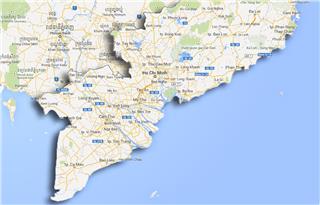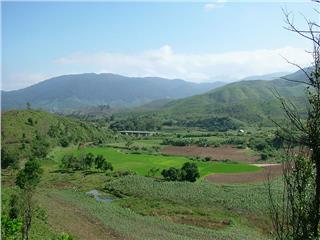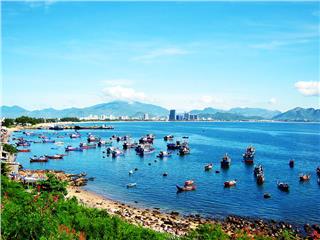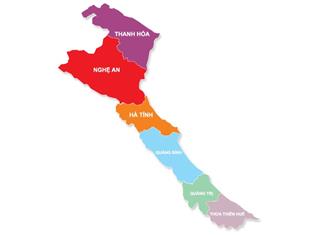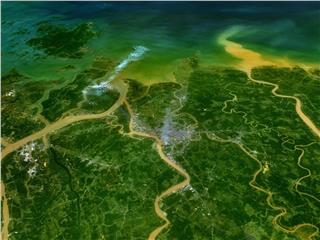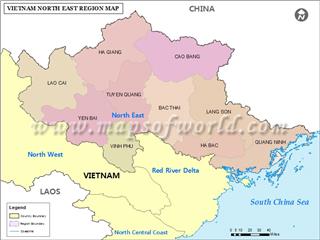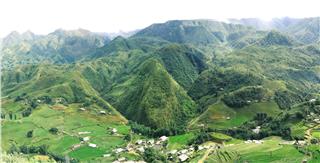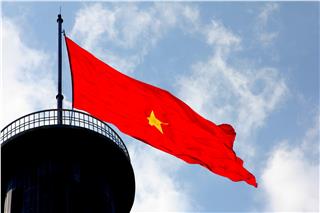Phu Tho situates in the confluence, the western gateway of Hanoi, bridging the provinces of North Delta to the northeastern provinces. It is considered the ancestral land of Vietnam where Hung Kings established the first country in Vietnam history.
Phu Tho is one of midland provinces in Northeast Vietnam, as well as the gateway to the northwest of Hanoi, about 80km from Hanoi to the north. It borders Vinh Phuc in the east, Son La in the west, Hoa Binh in the south, Yen Bai and Tuyen Quang in the north. Viet Tri city is the center of administration, economy, culture, politics and education of the province, about 80km far from the center city of Hanoi and 50km from Noi Bai International Airport. Viet Tri City is located opposite Ba Vi District, Ha Noi over the Red River.
Geography
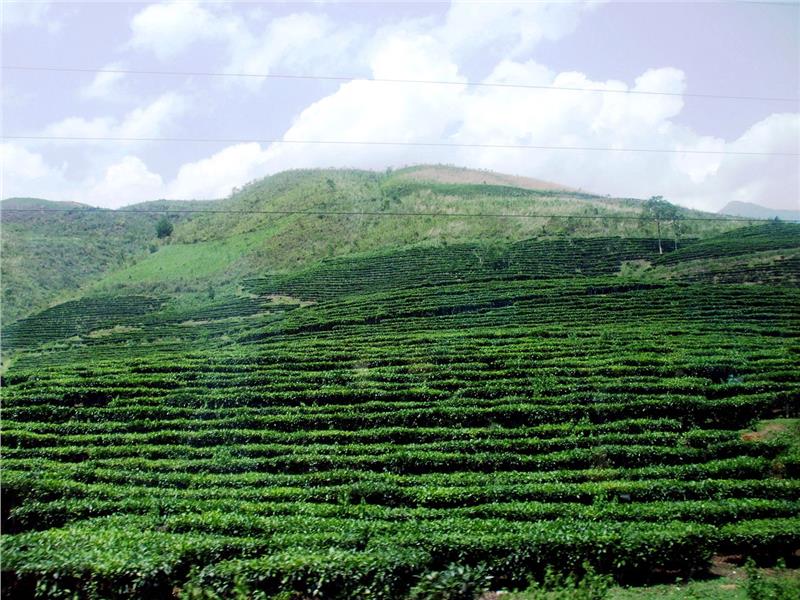
The total natural area of Phu Tho is 3.532,9493 square kilometers, accounting for 1.5% of the total area of the country. Phu Tho has four poles including:
North Pole: 21 ° 43' North Dong Khe commune - Doan Hung district.
South Pole: 20 ° 55' North at the foot of Tu Tinh, Yen Son commune - Thanh Son district.
East pole: 105 ° 27' East in Vinh Quang village, Lo River commune - Viet Tri city.
West Pole: 104 ° 48' East in My A village - Thu Cuc commune - Tan Son district (this is the largest commune in Phu Tho, nearly 1.5 times compared to Phu Tho town - 96.6 square kilometers).
Phu Tho is a province located in the North midland and mountainous region, so Phu Tho topography is fragmented and divided into mainly sub-regions. The sub- alpine region in the west and south of Phu Tho despite having some difficulties in walking, exchange, this region has great potential to develop forestry, mining and farms. Low hills are favorable for the cultivation of industrial trees, food crops and animal husbandry.
Phu Tho situates in the confluence, the western gateway of Hanoi capital, bridging the provinces of North Delta to the northeastern mountainous provinces. The system of road, railway, and waterway from the Northwest and Northeast run through Phu Tho then to Hanoi, Haiphong and other provinces in the country. For example, National Highway No. 2 runs from Viet Tri through Tuyen Quang, Ha Giang to Yunnan - China (this road line is in the economic corridor of Kunming - Lao Cai - Hanoi - Haiphong - Quang Ninh), Highway 70 from Doan Hung to Yen Bai, Lao Cai and Yunnan - China, this route has been upgrading to become the strategic road Hanoi - Haiphong - Kunming (China), Highway 32A linking Hanoi - Trung Ha - Son La, and highway 32B between Phu Tho - Yen Bai with Ngoc Thap bridge over the Red River - a part of Ho Chi Minh Trail.
In term of climate, Phu Tho is located in the tropical monsoon climate, with a cold winter. The average temperature about 23 degree Celsius, the average rainfall is appropriately 1,600 to 1,800mm. The average humidity is relatively high about 85-87%. In general, Phu Tho climate facilitate the development of plants and animals.
History
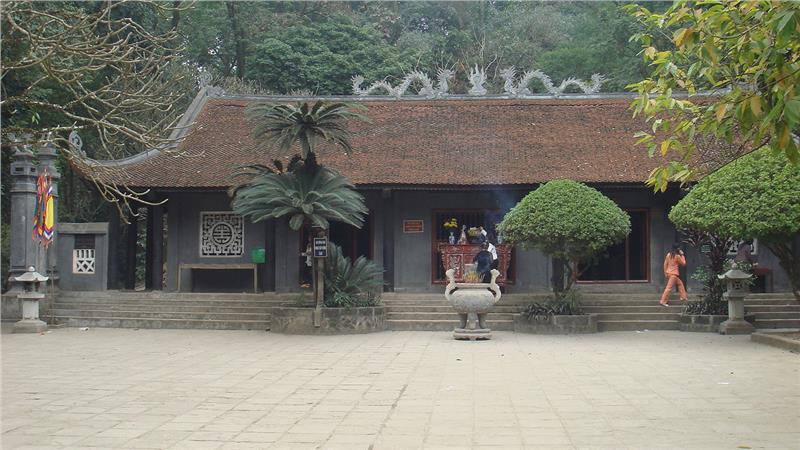
Phu Tho is regarded as the ancestral land of Vietnam, one of the cradles of mankind. Legend has it that here, Hung Kings built Van Lang - the first state of Vietnam with Phong Chau capital, around Viet Tri city today. Through thousands of years, since Hung Kings built Van Lang until now, Phu Tho province has experienced many changes of name and administrative boundary.
Under the reign of Hung Kings, Phu Tho belonged to Van Lang. In January 26th, 1968, the Standing committee of the National Assembly issued the resolution 504 to merge the two provinces of Vinh Phuc and Phu Tho into Vinh Phu province. Viet Tri city became the center of Vinh Phu.
November 6, 1996, the 9th National Assembly, 10th session, adopted the Resolution "on the division and adjust the administrative boundaries of provinces", including the re-establishment of Phu Tho and Vinh Phuc province. Phu Tho Province officially went into operation in January 1st, 1997.
Administration - Politics
Phu Tho administrative unit includes 13 districts, cities and town, namely Viet Tri city, Phu Tho town and 11 districts: Thanh Son, Tan Son, Yen Lap, Cam Khe, Tam Nong, Thanh Thuy, Ha Hoa, Thanh Ba, Doan Hung, Lam Thao, Phu Ninh and 277 communal administrative units. Phu Tho People’s Council is the agency of state power in the province, deciding the guidelines and measures to promote the local potential, the economic development, to strengthen the national defense and security, to constantly improve the material and spiritual life of local people and to fulfill the obligations of the country. The People’s Committee in districts is the executive body of the People’s Council and state administrative agencies in the province.
People - Language
According to the population census in April 1st, 2009, Phu Tho has 1.313,926 people with a population density of 373 persons / km². The percentage of population living in rural and mountainous region accounts for 85% and 15% in urban areas.
Phu Tho is the home to 21 ethnic minorities including Kinh, Muong, Dao, Cao Lan, Mong, etc., of which Kinh people cover the majority population. Because a majority Phu Tho population belongs to Kinh ethnic group, therefore their official language is Kinh language – the official Vietnamese language. Besides, there is language of the ethnic minority group such as Muong language, Dao language, so on.
Society
The health care of the province has changed positively. The national health care programs are implemented uniformly. Preventive medicine obtains important achievements, namely controlling and repelling some dangerous diseases. The medical network is strengthened and developed. The policy for medical staff are paid attention and resolved; operation of medical establishments is improved; health care system is interested to upgrade, add new equipment, quality treatment and attitude of staff is enhanced. The health care policy for those who are get the beneficiary of social welfare, have health insurance and poor people is concerned.
In term of education, the province is developing the institution network towards standardization, modernization and socialization to improve the comprehensive quality education, facilitate people to study regularly. Infrastructure, facilities and teachers serve the training are being prioritized.
Culture
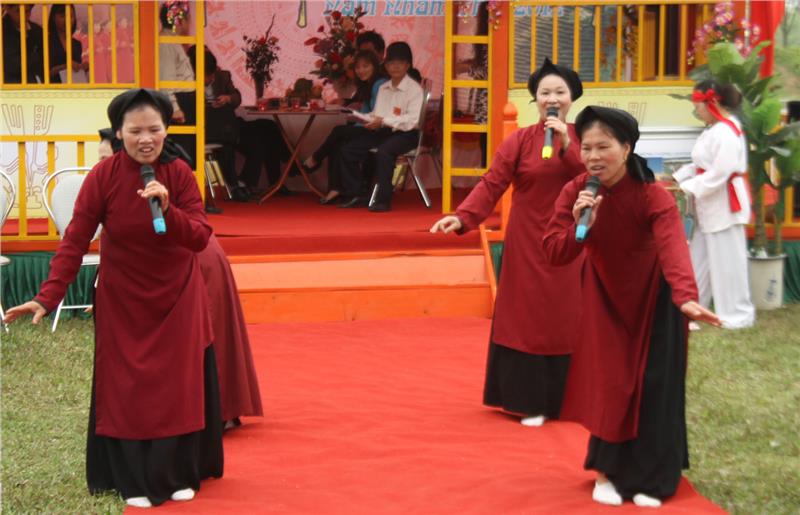
Phu Tho is the ancestral land, the cradle of Lac Viet culture, the home to Vietnamese ancient people under Hung Kings. The land associates with legend about the “Children of Dragons and Fairies” of Vietnam nation as well as the history of building and defending of 18 Hung Kings - the first dynasty in Vietnam history. It also keeps and preserved a large volume of tangible and intangible cultural heritage of the ancestral land. In particular, recognized Xoan singing as the intangible cultural heritage of the humanity and the worship of Hung Kings as the representative intangible cultural heritage by UNESCO has confirmed the value of cultural heritage in the province. With the efforts of all levels, sectors and communities, cultural heritages in Phu Tho is preserved and promoted their good values in modern life.
Economy
Phu Tho economy in 2014 stabilizes and continues growing; industrial production gradually increased in the last months; service sector steadily developed, the export turnover increased significantly; consumer price index was controlled at low level. State budget revenue in the province is beyond the assigned estimates; people's living is improved.
Phu Tho has great potential for development of agro-forestry products, mining and mineral processing, production of construction materials, textile and garments because Phu Tho has the local labor force and built a number of industrial zones, industrial clusters.
Tourism
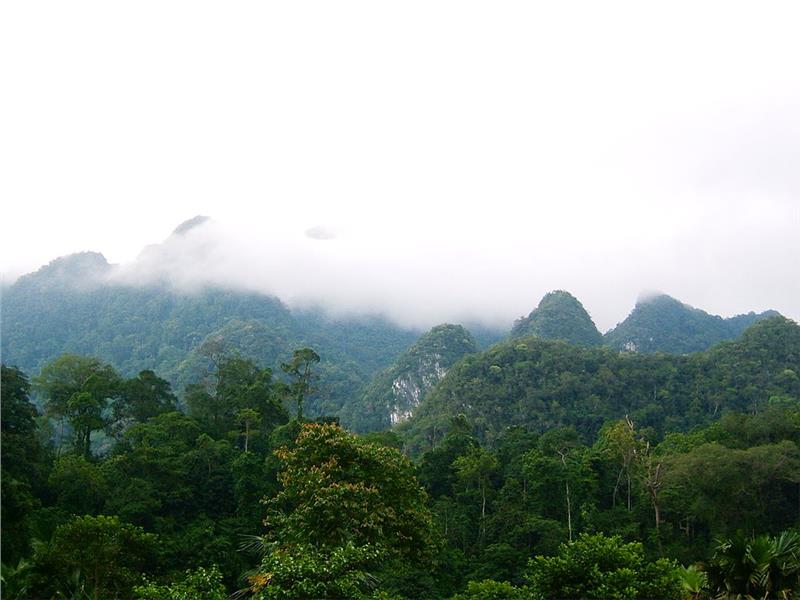
Phu Tho has the cultural identity associated with the history of building and defending the country since Hung Kings with more than 200 historical relics, scenic spots and revolutionary relics. Golden imprint of the history of the building and defending the country of Hung Kings were imprinted through the mausoleums, monuments of Hung Temple historical relics. This is a national special historical - cultural relic, built on Nghia Linh mountain - Phong Chau - the former capital of Van Lang country 4,000 years ago. The historical relic site includes four main temples, including Ha, Trung, Thuong and Gieng.
Ha Temple was rebuilt in the 17th or 18th century. Legend has it that the place was where Au Co gave birth to an egg sac from which hatched 100 children. Legend has it that Trung temple was the place where the Hung Kings and their Paladins and Military chiefs often came to enjoy the landscape and discuss national issues. Here was also the place where the 6th Hung King ceded the throne to Lang Lieu, his dutiful son who created "chung" and "giay" cakes.
Thuong Temple is the place where Hung Kings often came here to conduct a ceremony to pray to heaven, earth and God of Rice for a favorable year, abundant crop and prosperity. Legend has it that 6th Hung King set up an altar to pary to God for a hero to drive An invaders away. After Saint Giong defeated the invaders and returned to the Heaven, the King set up a shrine in the mountain to worship the Saint. Later, the votive tablet of the king was also placed there.
Tomb of the 6th Hung King is located on the east of Thuong Temple with mountains, water surround, and faces the Southeast. Gieng temple is the place where princesses Tien Dung and Ngoc Hoa used to look at themselves in the water surface of the well and comb their hair.
Hung temple is a beautiful landscape and an important historic cultural relic for each Vietnamese people. Coming to Hung Temple is coming to the root of the nation, to proud of origin “Children of Dragons and Fairies” flowing in the veins of every Vietnamese citizen.
In addition, Phu Tho owns many famous attractions such as Hung Kings Temple (Lam Thao), Ao Chau Lagoon, Ao Gioi, Fairy Spring, Xuan Son National Park (33 687 ha, of which there are 15,000 hectares of primary fores), Thanh Thuy hot mineral spring, Mother Au Co Temple, Lau Thuong temple, Phuc Khanh Pagoda, archaeological sites Phung Nguyen, Son Vi, Go Mun, Hien Luong war zone (Ha Hoa), and Van Thang (Cam Khe), etc. These are the great potential for Phu Tho tourism development.
Festival
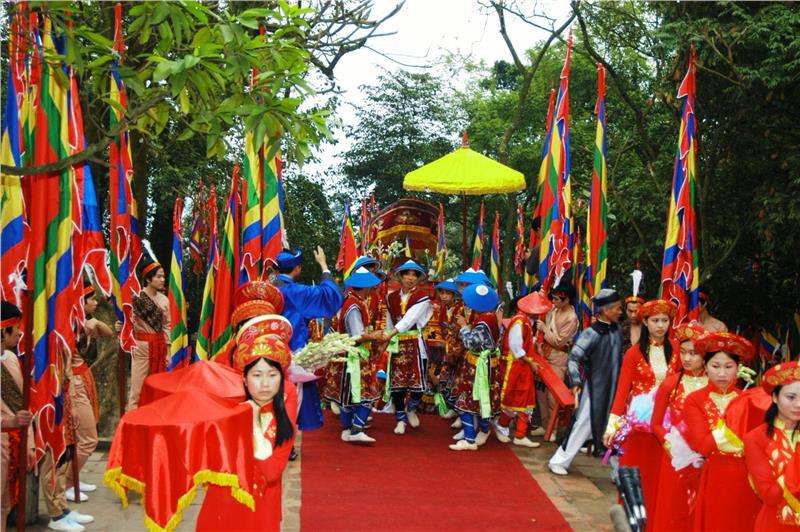
With the flow of cultural roots, Phu Tho is considered the place has dense system of relics and festivals; each festival has its own unique beauty. Traditional folk festival in the ancestral land is very rich and derived from ancient history. Over thousands of years of building and defending the country, these festivals in Phu Tho keep a special role in the treasure of folk festivals in Vietnam. They are imbued with the national identity creating a great spiritual strengthen in ethnic communities. Festivals here are mostly village festival, their influence spread in a large area. Hung Temple Festival is crystallized from the beauty of village festivals in the ancestral land.
Hung King Festival takes place annually on the 10th day of the 3rd lunar month. However, the festival is held several weeks before the main ceremony with many customs such as beating bronze drum of Muong group and making a pilgrimage to the Hung Kings temple to offer incense. Along with Hung Temple Festival, there are many traditional festivals in the sacred ancestral land. These are the intangible cultural heritages originating from the deep culture of Vietnam such as Mother Au Co festival, Phet festival (Hien Quan), xoan singing festival, nem con, etc.
